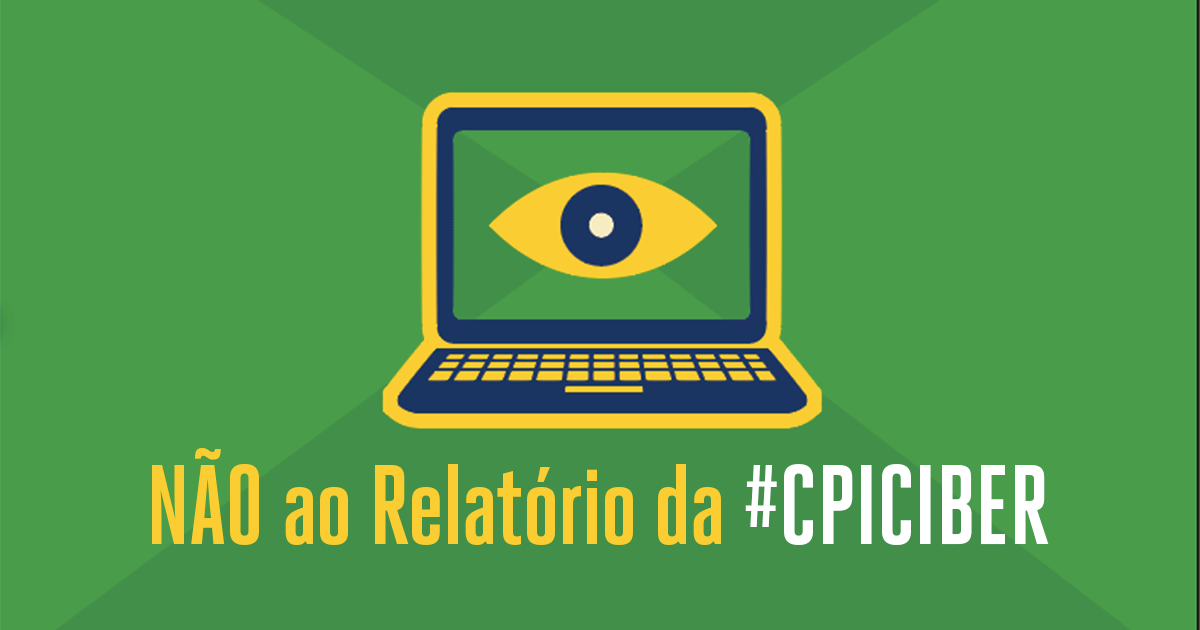Lawmakers in Brazil are contemplating proposals that threaten the Marco Civil and other laws that protect privacy and free expression. Civil society is fighting back.
A few weeks ago at RightsCon, we learned that a parliamentary inquiry commission formed to deal with cybercrime in Brazil had issued a draft report with practical and legislative recommendations for different branches of the government. The report contained such alarming, rights-harming proposals that the Brazilian digital rights organizations at the conference held an emergency session to discuss the implications. Later that day, NGOs from around the world joined in an open letter opposing the first draft. The Brazilian think tank ITS Rio also moved swiftly, putting together a petition. And Coding Rights and IBIDEM published an extensive analysis of the commission report.
This week, the final draft of that report was published. Several of the most troubling recommendations remain. Less than a week from now, it will be voted on, and if the commission members approve, these recommendations could soon become law. For that reason, we have joined our partners to give you a way to speak out against the proposals by tweeting to representatives in the commission.
Here are the most troubling recommendations in the report:
- Police would be allowed warrantless access to users’ Internet Protocol (IP ) address data
- Internet intermediaries, such as websites, platforms, or apps, would be required to actively monitor user-generated content for material that a court has deemed illegal
- Judges would be allowed to block content or applications that are merely related to criminal activity
How these proposed reforms harm human rights
Each of these proposals would seriously undermine users’ fundamental rights. Here’s how:
Warrantless access to IP address information – Granting police access to IP address information without a warrant is equivalent to handing over information about your internet connections and the applications you use. Your IP address information can reveal highly specific details about your private communications. That’s why Article 10.1 of the Marco Civil states that only those with a court order can gain access to your connection and application usage logs. This is consistent with the international human rights standards of necessity and proportionality that must be applied whenever your private information is requested.
Active monitoring for infringing content – When you deputize companies to determine whether online content is infringing — rather than responding to specific complaints — you endanger freedom of expression. In some cases, illegal content could easily be identified. But in others, there are factors that should be considered before taking the content down. Companies are often ill-prepared to determine, en masse, whether content falls into categories that are exempt from copyright, such as for commentary and satire. In such cases, only a judge would be able to make a thorough evaluation. The proposal in the report does not take this into account, and the commission should consider alternatives that lower the risk of curtailing speech.
Blocking applications and content merely “related” to criminal activity – This proposal should be rejected, even though the proposed text describes this measure as a last resort, and mentions safeguards such as impact assessments. It’s easy to foresee a judge blocking an entire application because there is some relationship to criminal activity, yet this would be clearly disproportionate as it would also impact legitimate use, harming free expression and the right to access information. We’ve already seen a judge in Brazil order a nationwide block of WhatsApp. A superior tribunal quickly reversed that decision, but the report argues for reform that would give judges direct legal authority to block applications.
How the proposed reforms harm innovation
The reforms proposed in the report would also have a negative impact on companies and entrepreneurs.
Asking companies to actively monitor for illegal content presents both legal and practical burdens. From a legal standpoint, intermediaries could be held liable if they fail to identify and take down infringing content. From a practical standpoint, companies could face profound technical and economic challenges in developing ways to monitor content, whether they set up a human workforce or a system for automated identification — or both. Not every intermediary will have the same capabilities and resources. More importantly, human and automated moderation systems alike are prone to error, and can easily be deceived – consider mirrored or altered videos on YouTube, for example.
If the law authorizes blocking apps or services simply because they’re “related” to criminal activity, it could affect any application or service on the internet that hosts user content in the form of messages, comments, or other kinds of shareable content. Consequently, any application or platform, such as those for social networks, messaging, news forums, or newspapers, could be blocked entirely because some people use them for criminal activity..
How you can help
The commission should reject recommendations in the report that risk harming fundamental rights. The only way to ensure safety and the rule of law on the internet is to support policies that respect human rights.
As an internet user, you can support the activists in the ground. An alliance of digital rights organizations in Brazil is working on an alternative text to the report that corrects many of its problematic provisions.
You can help by tweeting to the representatives in the commission, demanding that they respect users’ rights.
If you are part of a company that does business in Brazil, you can join us by issuing a public statement of support, and we will amplify your voice.
We hope that no matter where you are, you will help us support internet users in Brazil. Stay tuned for news on what happens in Brazil by friending us on Facebook, following us on Twitter, or by subscribing to our action alerts and newsletter. We’ll keep you posted!
Image credit: Electronic Frontier Foundation
